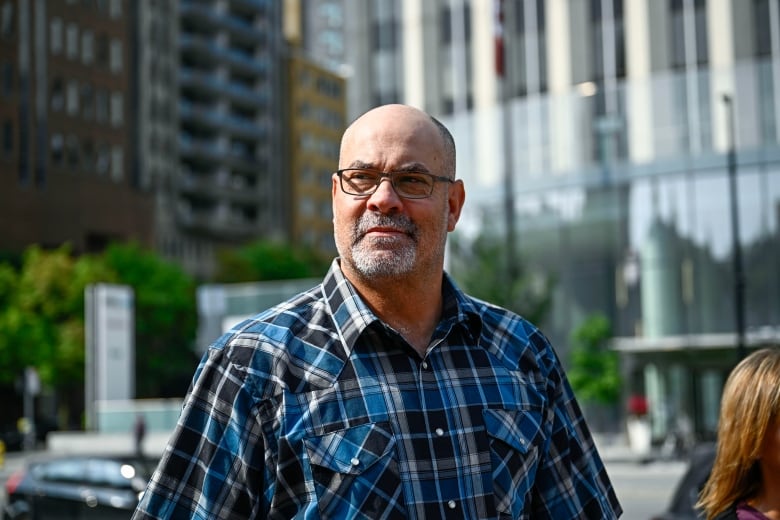
A lawyer for Chris Barber, a key figure in the Freedom Convoy, argued Thursday in closing submissions that her client is “morally innocent” and that there is a lack of evidence against him.
Barber and Tamara Lich are jointly charged for their roles in the winter 2022 protests that clogged downtown Ottawa with vehicles as part of a massive protest against vaccine mandates.
They have pleaded not guilty to charges of mischief, intimidation and obstruction, and other alleged offences related to organizing, promoting and fundraising for the convoy.
The trial, which began nearly a year ago, is now nearing its conclusion.

Crown prosecutors spent two days this week arguing that Barber and Lich worked together in a criminal enterprise to orchestrate the blockage of downtown streets and manage other aspects of the protests, including security, fundraising and public relations.
Barber’s defence, led by lawyer Diane Magas, began its closing submissions by arguing that the evidence against her 48-year-old client is lacking.
Throughout the trial, the defence has blamed Ottawa police for gridlocking protesters in the city.

Magas accused city and police officials of poor planning and preparation in the days leading up to the convoy’s arrival in Ottawa in late January 2022.
The defence highlighted Barber’s Jan. 29 arrival in the city, captured on video and shared online, which was entered as evidence. The video shows Barber in his semi-truck being escorted by police onto Wellington Street near Parliament Hill.
Magas also cited text messages retrieved from Barber’s phone upon his arrest. In them, he described the police as “playing games” and being “unclear” with the protesters.
Barber and Lich’s defence teams argue that they cooperated with police throughout the protests.
Court was shown evidence that Barber was informed police wanted trucks moved from residential areas to designated staging locations. After learning this, Barber decided to move his truck out of the city’s core during the protests. In videos posted online, he encouraged others to do the same.
The court also reviewed evidence of Barber’s unsuccessful attempt to promote a “slow roll” of vehicles around Parliament Hill, which his defence argues was meant to alleviate the distress of downtown residents affected by the parked trucks.

He also told police during the convoy he was working with lawyers and others to ensure the protest stayed legal.
Magas cited friendly text messages exchanged between former Saskatchewan premier Brad Wall and Barber during the protests, arguing that these communications show Barber was “trying to do everything right, seeking advice from politicians and so on.”
Magas further contended that any suggestion by Barber that the convoy was in Ottawa to “cause grief” was not criminal, as protests often inherently cause disruption.
Trial to continue next week
The trial is set for three more days in court next week. Magas is expected to conclude her submissions before the court hears closing arguments from Lich’s legal team.
Lich’s defence is expected to argue that, like Barber, her words and actions in Ottawa were aimed at changing government policy on vaccine mandates.
Her defence is also likely to dispute the claim that Lich and Barber conspired together, and to instead argue that prosecutors are incorrectly portraying the Freedom Convoy as a single, unified event.
If convicted, Barber and Lich could face jail time.
After court ended for the week on Thursday, Magas spoke briefly with reporters to explain why the trial continues to drag on.
“There’s an enormous amount of documents, evidence, transcripts, exhibits, to deal with for each of the counsel,” she said. “It’s taking a bit more time than we expected.”